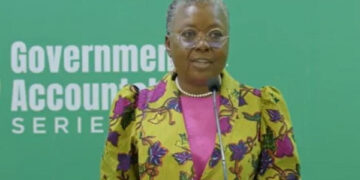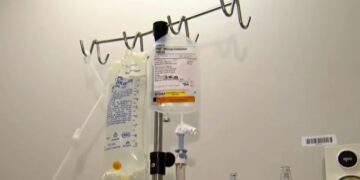Ghana’s Minister of Health, Kwabena Mintah Akandoh, has raised the alarm over ongoing cholera and meningitis outbreaks, describing the situation as a major public health concern.
Speaking in Parliament on Tuesday, February 18, 2025, he provided a comprehensive update on the government’s response strategies.
The minister revealed that Ghana’s cholera outbreak, which began in October 2024, has now spread across five regions namely Greater Accra, Central, Western, Ashanti, and Eastern resulting in 6,145 cases, 719 confirmed infections, and 49 deaths.
However, Mr. Akandoh assured Parliament that active cases are declining, attributing the progress to robust intervention measures such as: Heightened surveillance to detect and contain new cases, Improved laboratory capacity for rapid diagnosis, Cholera treatment centers to manage severe cases, Vaccination campaigns in high-risk areas, including Accra, Agona West, and Effutu.
Despite these efforts, the minister acknowledged challenges such as poor sanitation, open defecation, and limited access to clean water, which continue to fuel the spread of the disease.
Ghana is also grappling with an outbreak of bacterial meningitis, particularly in the Upper West Region, which has recorded 129 cases and 16 deaths so far.
The minister explained that the current outbreak is caused by Streptococcus pneumoniae, a strain that cannot be controlled through vaccination.
However, the government has swiftly deployed several measures, including: Emergency medical teams to support overwhelmed health facilities, Free treatment for all affected individuals, Activation of the Emergency Operations Center to coordinate response efforts, Collaboration with international health experts, including the WHO, for best-practice interventions.
Mr. Akandoh urged residents in affected regions to seek medical attention immediately if they experience symptoms such as severe headache, fever, vomiting, and neck stiffness.
The minister reaffirmed the government’s commitment to strengthening Ghana’s healthcare system, highlighting President John Dramani Mahama’s vision of a proactive, disease-preventive health sector.
He called on local authorities, communities, and citizens to prioritize sanitation and hygiene, as long-term solutions to prevent future outbreaks.
While the situation remains under control, the Ministry of Health has urged Ghanaians to remain vigilant and adopt preventive measures, such as drinking safe water, practicing good hygiene, and avoiding self-medication.
Read Also: Mahama Reiterates Commitment to Stabilizing Ghana’s Economy
Source: Comfort Sweety Hayford/ATLFMNEWS

























